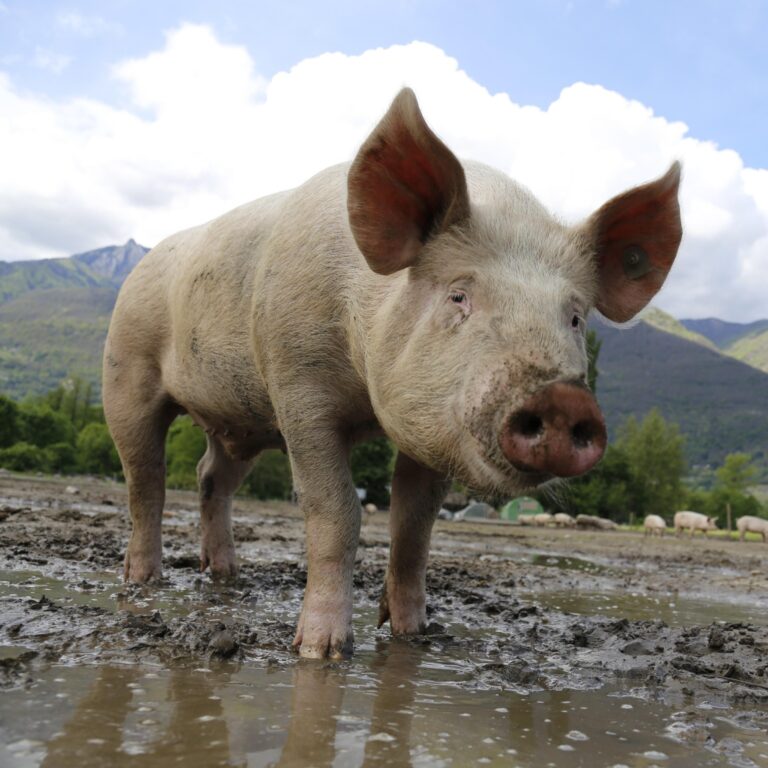By
Pigs are one of the most popular animals when you consider how much meat you can get from them. What’s more, there is a great variety to be had from their pork, and this includes the most delicious meat of them all: bacon.

Bacon is greatly beloved all throughout North America and much of the world, and is used in all sorts of dishes enjoyed at breakfast, lunch, and dinner. So, time to get down to business. Just how much bacon can you get from a pig?
A single 250-pound pig will yield around 15 to 25 pounds of bacon. It all depends on the cut and how it’s cured. Depending on market prices a single pig can provide you with $75 to $175 worth of bacon.
Now, if you’re thinking of getting into the business of raising pigs for bacon, for any purpose, there is much more you’ll need to know.
The costs and challenges associated with rearing pigs can be a lot to handle, so this is something you want to rush into with a dream of getting some artisanal, home-raised bacon. Let’s get started.
That is Bacon, Not Pork in Total
To be clear, you aren’t getting 15 or 25 pounds of meat from a pig; that’s just the yield of bacon! You can expect to get anywhere from 140 to 160 pounds of meat from a single pig in cuts that are usable for human consumption.
What Cuts of Bacon Can You Get From a Pig?
While there are many different types of bacon available at the grocery store, they all come from the same place: a pig.
The pork belly is the most common source of bacon, and it can be sliced into thin strips or cut into thick slabs.
The loin is another common cut of bacon, and it is usually leaner and less fatty than belly bacon. Bacon can also be made from the shoulder, jowl, and back fat of a pig.
Costs Associated with Raising a Pig
If you’re thinking about adding a pig to your farm or homestead, there are a few things you should know about the costs associated with raising one.
First of all, pigs are not cheap. A quality pig can cost anywhere from $250 to $500 or even more.
In addition, pigs require a lot of space. A single pig needs at least 12 square feet of space, so if you’re planning on raising more than one, you’ll need even more room- lots more room!
Pigs also have very specific dietary needs and must have a diet that includes hay, pellets, and fresh fruit and vegetables.
Pigs also need to be vaccinated against a variety of diseases, so you’ll need to factor in the cost of regular vet visits.
Finally, remember that pigs grow quickly: an 8 week old piglet can easily become a 200 pound adult within a year.
You’ll need to be prepared for the additional cost of food and expanded housing and additional care as they grow. All things considered, potential pig owners should do their research before taking the plunge.
What’s the Average Price of Bacon on the Market?
When it comes to bacon, there’s no such thing as cheap eats. The average price of bacon on the market is about $6 per pound, and that’s before you even factor in the cost of specialty brands and premium types. But why is bacon so expensive?
A large part of the answer has to do with production costs. Bacon you get at the grocery store is usually made from pork belly, which is one of the more expensive cuts of meat.
Pork belly prices have been on the rise in recent years, due in part to increased demand from China.
In addition, bacon is a labor-intensive product, and the process of curing and smoking bacon takes time. As a result, bacon producers have to charge a premium price in order to make a profit on what is, in reality, pretty scant cuts of meat.
Is Raising Pigs Just for Bacon a Good Idea?
Is raising pigs for bacon a good idea? It all depends on who you ask. Some people would say that it’s a worthwhile way to be connected to the harvest of your own pork.
There is also no denying that bacon is a popular food, and there is a growing demand for it. In fact, the United States alone consumes nearly $5 million worth of bacon per year.
This demand has resulted in the mass production of pigs for bacon. Maybe it is worth looking into raising your own as a lucrative business opportunity?
Maybe, but likely not, at least on a small scale. The cost of raising pigs has certainly gone up in recent years, while the price of bacon has remained relatively stable, even adjusting for inflation.
This means that small-scale pig farmers are not seeing the same profits they once were and will have an even harder time competing with factory farms.
In addition, the market is becoming increasingly saturated, and it may be difficult to find a buyer for your bacon if you’re not selling to a local butcher or restaurant.
Will your friends, family, and neighbors be willing to pay premium dollar for your bacon compared to the stuff they get at the grocery? Maybe, maybe not.
If you want to get closer to the food that you eat, learn more about animal husbandry via raising pigs, or just want to keep meat “on the hoof” for long-term preservation then the net cost of raising pigs will likely be worthwhile.
Otherwise, you don’t stand to make much money doing it just by way of bacon. Ultimately, it’s up to you to decide. Weigh the pros and cons and make your own decision about whether or not it is right for you.
No comments:
Post a Comment